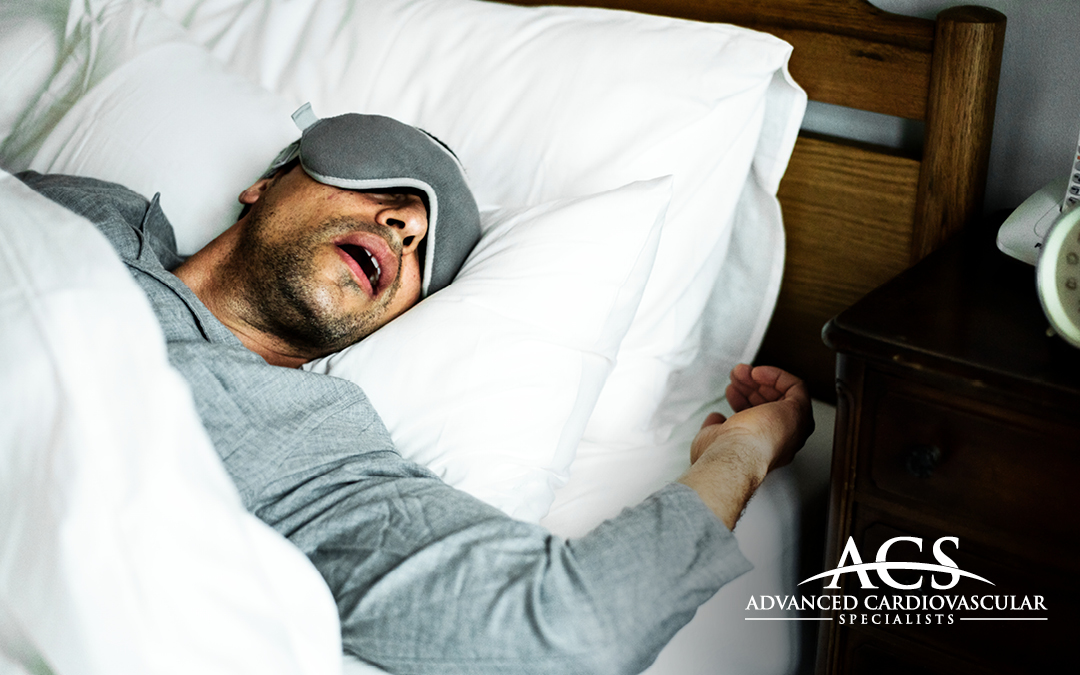The Sleep Apnea & Heart Failure Connection
If you are waking up often during the night or annoying your loved ones with epic snoring, you could be suffering from a condition called sleep apnea. It is a relatively common sleep disorder, but its implications can be a lot more serious than poor sleep quality.
Sleep apnea can lead to a range of cardiovascular diseases, including high blood pressure, stroke, arrhythmia and congestive heart failure. Untreated sleep apnea may significantly increase your risk of dying from heart disease. Studies suggest that anywhere from 40% to 70% of patients with heart failure show evidence of sleep apnea, making it one of the most common comorbidities in people with heart failure.
Sleep apnea is a disorder that causes a person to periodically stop breathing while asleep. These pauses in breathing can occur up to hundreds of times during the night, often waking the sleeper as they gasp for air. The most common form of sleep apnea is obstructive sleep apnea (OSA). This occurs when the throat muscles periodically relax, causing the upper airway to collapse or become blocked. It is commonly associated with being overweight or obese. Although, it can also occur in patients who are a healthy weight. The other less common form is central sleep apnea (CSA), which develops when there is a problem with the communication between the brain and the diaphragm muscles that control breathing.
Regardless of the type of sleep apnea, diagnosis and treatment are important because any sleep disorder that causes a patient to stop breathing puts extra stress on the heart. It can lead to dangerous high blood pressure, increased heart rate and eventually heart disease. The good news is that treating sleep apnea significantly reduces blood pressure and heart rate, thereby decreasing the risk of heart failure and other heart conditions.
Do You Have Sleep Apnea?
Snoring does not mean you have sleep apnea. Many snorers do not have the disorder, and it can also occur in people who do not snore. Sleep apnea can be hard to detect without a sleep study, but there are signs and symptoms that point to the condition. These include:
- Gasping or choking during sleep that wakes you up
- Loud snoring
- Sore or dry throat upon waking
- Morning headaches
- Daytime sleepiness/falling asleep during the day
- Mood changes and decreased libido
- High blood pressure
Diagnosis & Treatment
The most accurate way to diagnose sleep apnea is with a sleep study. Patients are monitored overnight in a sleep clinic to determine if sleep apnea is occurring and to what level: mild, moderate or severe.
Treatment of sleep apnea may only require lifestyle changes, but it depends on the underlying cause and the type of sleep apnea. For those with obstructive sleep apnea for whom lifestyle changes are not effective or who require relief in the short-term while lifestyle changes take effect, continuous positive airway pressure (CPAP) machines are the treatment of choice. This is a machine that provides constant airflow to prevent the airway from collapsing.
Lifestyle Changes
There are a number of healthy lifestyle choices that may help treat or prevent sleep apnea. These changes may also help even if you are suffering from poor sleep quality and/or snoring without sleep apnea:
- Lose weight if you are overweight
- Stop smoking
- Decrease or eliminate alcohol consumption
- Avoid caffeine, especially during the afternoon or evening
- Sleep on your side, rather than your back
- Raise your head with an extra pillow
- Get regular physical exercise during the day
- Practice good sleep hygiene, such as limiting screen time before bed, developing a pre-bedtime routine, going to bed at the same time every night and sleeping in a room that is dark, quiet and cool
If you are concerned about heart failure or other forms of heart disease, our experienced cardiologists are here to help. Call (318) 798-9400 to make an appointment today.

